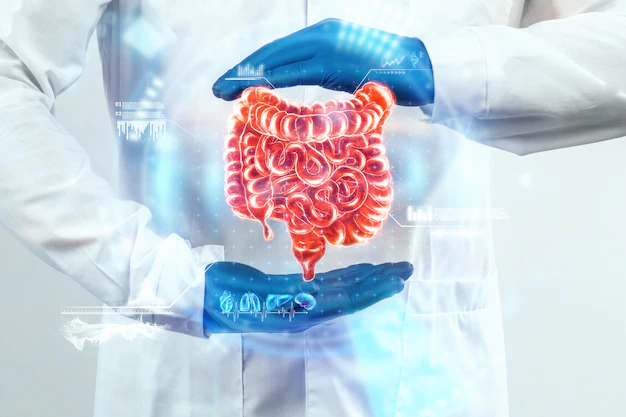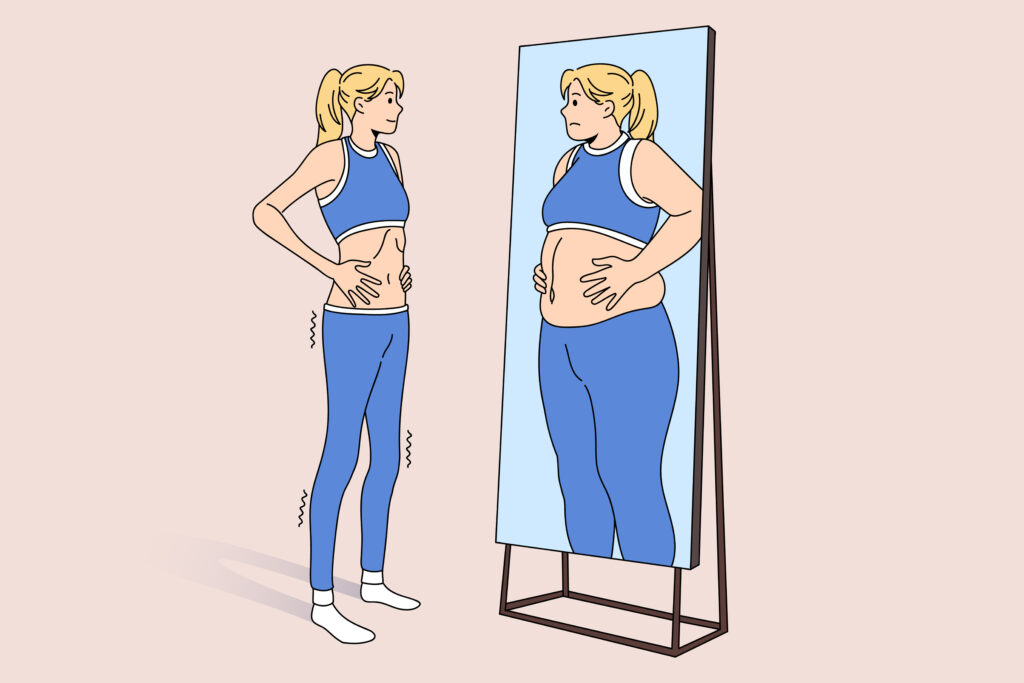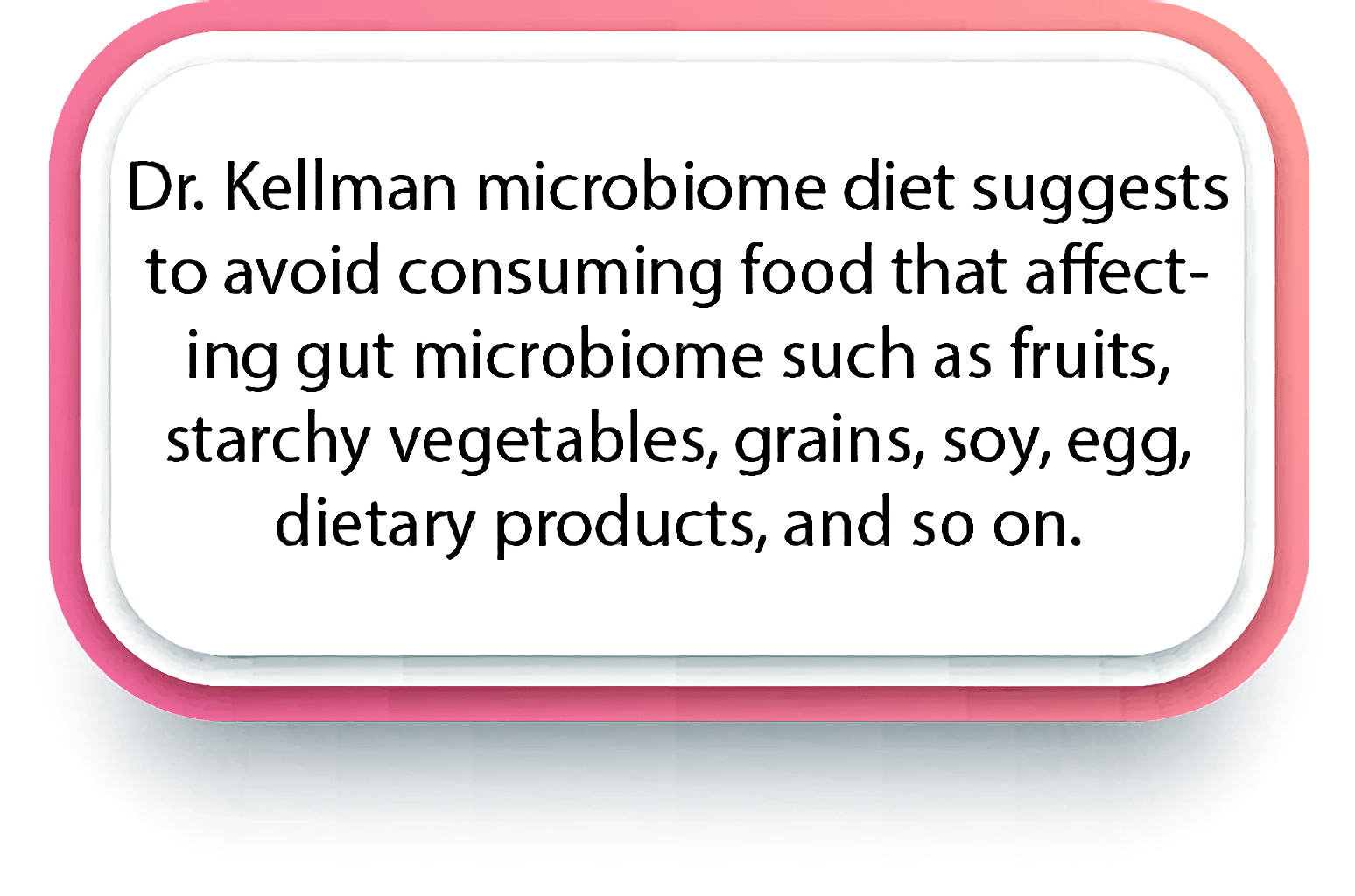BioMed 4R Microbiome Diet
Maintain Gut Health and Help You Lose “Stubborn” Fat!
Are gut bacteria also divided into "fat" and "thin" types?
When gut bacteria break down prebiotics, they generate calories. Thus, the composition of the gut microbiota can influence differences in caloric extraction from ingested foods. The more diverse the gut flora and the richer the good bacteria, the more beneficial it is to the body. On the contrary, when the diversity of gut bacteria is reduced, the proportion of “lean bacteria” Bacteroidetes, which can decompose plant starch and fiber into short-chain fatty acids, will decrease in the gut tract. The proportion of “fat bacteria” Firmicutes, which are more likely to absorb calories from high-sugar and high-fat foods, will increase, much easily resulting in obesity.


Can probiotics help you lose weight?
Studies have shown that taking probiotics (especially Lactobacillus) can reduce calorie absorption and increase energy expenditure. It is recommended that the amount of probiotics taken every day reach more than 10 billion for at least 3 months to demonstrate obvious effects. In addition, a nutritious diet must be applied to create the best environment for probiotics to grow.

Based on Dr. Raphael Kellman’s Microbiome Diet, BioMed’s team of nutritionists has made modifications and improvements to make it simplier, easier and happier for you to build a healthy gut and lose weight effectively.
We will help you rebalance your gut flora to maintain gut health through these 4 principles:
Reduce
Reduce foods that gut bad bacteria like and leverge on
Replace
Replace with the microbiome diet to include more foods containing prebiotics and probiotics, thus increasing the abundance of good bacteria in the gut
Repair
Taking probiotic supplements for gut wall repair
Rebalance
Gut probiotic balance is examined again through PCR test

The program lasts for 3 months, and is divided into the following 4 phases:
One-on-one nutrition counseling
Biomed's team of nutritionists will reference on your gut health
and personal habits to provide dietary advice
Outing Information
We will provide members with dining out and shopping tips to increase the intake of plant-based foods.
Recipe
We will provide members with a variety of healthy and delicious recipes.
Body composition analysis
We offer body composition analysis to allow members to examine changes in their bodies during the program.

The Microbiome Diet mainly reduces some foods that have a negative impact on the gut microbiome, including refined sugars, processed foods, foods containing trans fats, and so on. Excessive consumption of these foods can increase body weight and body fat, so the implementation of the Microbiome Diet can be effective in weight loss and fat loss. Additionally, prebiotics are a type of fiber, thus eating foods with prebiotics can increase satiety and hence reduce the chance of eating other foods between main meals.
Microbiome Diet can increase the diversity of gut flora. Studies have shown that leaner people (lean objects) have higher gut microbial richness than obese people (obese objects).
The body will coordinate with its own homeostasis. If the blood sugar rises too high, the body will release insulin to convert the excess sugar into fat for storage. The Microbiome Diet can stabilize blood sugar and reduce the chance and percentage of fat storage.
The Microbiome Diet recommends eating foods that contain both prebiotics and probiotics. Prebiotic fiber promotes the growth of probiotics, and these fibers are broken down by the probiotics to produce short-chain fatty acids. Short-chain fatty acids help carbohydrate and fat metabolism, inhibit lipogenesis, and reduce the size and number of fat cells in adipose tissue, thereby achieving fat loss. In addition, short-chain fatty acids can also regulate satiety and reduce appetite.
Insulin resistance increases insulin and converts more sugar into fat, leading to obesity. Obesity can also lead to insulin resistance. Studies have found that an endotoxin-producing Enterobacter species acquired in the guts of obese people can exacerbate inflammation, obesity and insulin resistance. Thus, having too much of this endotoxin producer in the gut increases the incidence of insulin resistance.
Dr. Kellman Microbiome Diet


BioMed 4R Microbiome Diet







